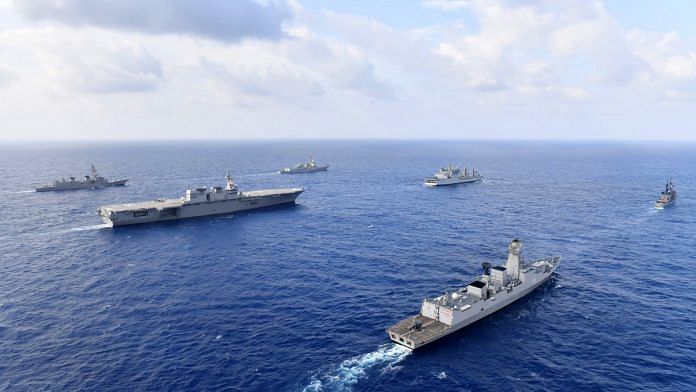New Delhi: In veiled criticism of China over the border row in eastern Ladakh, Australia on Thursday said it opposes any attempts to unilaterally alter the status quo along the Line of Actual Control (LAC) as it will only serve to increase tension and the risk of instability.
Australian High Commissioner Barry O’Farrell also said Australia remains deeply concerned by “actions” in the South China Sea and that it rejected China’s “unlawful maritime claims” in the region.
Referring to the situation in eastern Ladakh, he said Australia “urges” restraint along the LAC, and supports continued moves towards de-escalation.
“As I told the External Affairs Minister of India today, Australia opposes any attempts to unilaterally alter the status quo, which only serve to increase tension and the risk of instability,” O’Farrell said in a statement.
“It is important that the bilaterally-agreed principles and norms that have helped prevent escalation or miscalculation in the border areas over many decades continue to be observed,” he added.
Following a series of diplomatic and military talks, the Indian and Chinese armies began a mutual disengagement process at several friction points from July 6. However, the process has not moved forward as expected by India.
O’Farrell also said Australia remains deeply concerned by actions in the South China Sea that are “destabilising and could provoke escalation”.
“On 23 July, Australia lodged a note with the UN Secretary General refuting China’s unlawful maritime claims in the South China Sea,” he said.
“It rejects China’s claim to historic rights and internal waters, its assertion of certain maritime zones, and its contention there is wide international recognition of its South China Sea sovereignty claims,” the High Commissioner added.
In the last few weeks, China has increased its military assertiveness in the South China Sea when the entire world is battling the coronavirus pandemic.
China claims sovereignty over all of South China Sea, a huge source of hydrocarbons. However, several countries in the region including Vietnam, Philippines and Brunei have counter claims.
Talking about the Indo-Pacific, the Australian High Commissioner said the Canberra vision for the region remains unchanged. He said the vision is for “an open, free, rules-based region; a region resilient to coercion and supported by inclusive global and regional institutions that promote prosperous, stable and sovereign states based on shared interest”.
“Territorial disputes and competing claims should be resolved peacefully by the claimant countries, and in ways consistent with international law,” he said.
O’Farrell said the Indo-Pacific region, like other parts of the world, is grappling with the enormous challenges posed by the COVID-19 pandemic.
“Even as we focus on the health and economic impacts of the pandemic, Australia remains vigilant about strategic trends inimical to our vision of the region,” he said.
The Australian envoy further said: “Each country in the region has the agency to shape not just how our region emerges from COVID-19, but how we use this test to reinforce a regional order guided by agreed rules and international law.”
In his statement, O’Farrell also mentioned the challenges in the cyber domain.
“In recent months, malicious cyber actors have sought to take advantage of the pandemic across the Indo-Pacific region. We call on all countries to refrain from behaviour which violates their international commitments,” he said.
“We will work through multilateral and regional institutions to strengthen a rules-based cyberspace. Australia has announced a record boost to cyber security spending more than Rs 7,000 crore (AUD1.35 billion), recruit 500 new experts,” he added.
Also read:Navy deploys large number of ships in Indian Ocean to send clear ‘message’ to China



